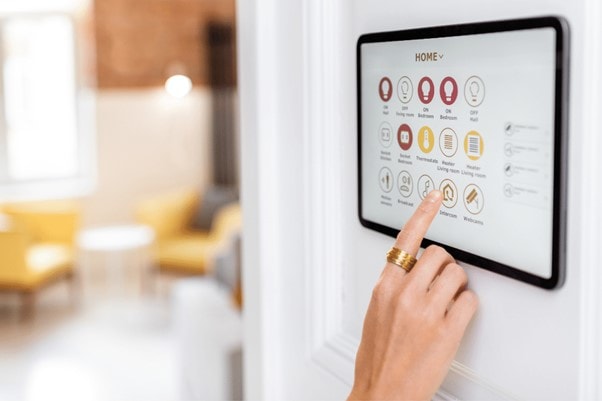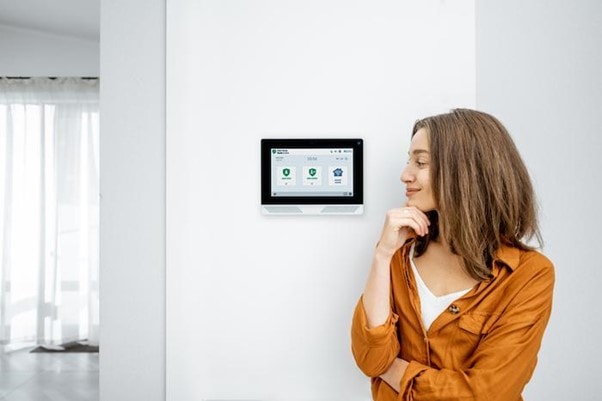Note: This is a guest post written by Jeeva Shanmugam – The idea of the smart home is quickly gaining popularity at a time when technology is continuing to change how we live our everyday lives. Smart homes provide unmatched convenience, energy efficiency, and connection by seamlessly integrating cutting-edge advancements into our living environments.
In this article, I would like to explore the rapidly growing phenomenon of smart homes and their profound influence on how we live and engage with our environment.

The Rise of Smart Home
In a nutshell, the smart home business is expanding quickly, and by 2025, it is anticipated that global investment in smart home technology would total $137.8 billion. This rise may be attributed to a variety of factors, such as the growing affordability of smart home technology, the rising need for convenience and security, and the expanding understanding of the environmental advantages of smart homes.
What is Smart Home?
In simple terms, A smart home is like a tech-savvy friend who assists with automating tasks around your house. It’s a unique sort of house where technology combines to simplify living.
Imagine the temperature automatically changing to your preference or the lights going on as you enter a room without your intervention.
With the aid of this sophisticated technology, you can even operate the locks on your doors and the alarms that keep your home secure.
Using your phone, tablet, or even your voice, you can communicate with your house in a magical way! It’s like waving your hand and having your house do as you say.
Benefits of Smart Home
Numerous advantages that come with owning a smart home may improve and simplify your everyday life in numerous ways.

Convenience is a significant benefit: Imagine not having to do household chores by hand; smart homes can handle it for you. For instance, a smart lock enables keyless entry while a smart thermostat may change the temperature of your house even while you’re not home.
Another important benefit is safety: Advanced security features for smart homes include remote monitoring and management of your security system. Your home’s security is increased with smart locks and doorbell cameras, which allow you to see who is at the door before answering it.
Another major benefit is energy efficiency: By automatically shutting off lights and appliances when not in use, smart homes help you conserve energy. Because they can adjust the temperature based on your schedule and the weather, smart thermostats can help you save money on electricity.
Smart homes have your back when it comes to your physical and psychological well-being: They may keep tabs on your daily routine, keep an eye on your sleeping habits, and even send you prescription reminders. The capacity to prepare healthier meals with smart equipment and guarantee high-quality indoor air are also features of these homes.
In smart homes, entertainment is also improved. You may use a remote control or your voice to operate your TV, music player, and other devices. Your entertainment experience will be smooth and delightful with the help of smart speakers, which can play music, deliver news updates, and set alarms.
Future of Smart Home
The smart home industry is currently only starting to grow, but in the next years, it is expected to advance quickly. We should expect a rise in innovative and alluring smart home services as technology develops and becomes more widely available.

Future trends for smart homes are anticipated to follow a few main paths:
Enhanced Connectivity: As time goes on, smart houses will connect to the internet and one another. This will result in more complex automation and control, creating new channels for device communication and collaboration.
AI-powered Appliances: Appliances that are capable of understanding your routines and preferences are on the verge of becoming intelligent. This change will improve their usability and efficacy.
Customized Experiences: Smart homes will be able to skillfully adapt their settings and services to meet the unique needs and preferences of each occupant. This guarantees a setting that is not only cozy but also completely responsive to personal tastes.
Environmental responsibility: Smart houses’ development will lead to improved energy efficiency and less carbon impact. The expansion of the smart home industry is greatly aided by this crucial focus.
In summary, the smart home market is still in its infancy, yet it has limitless potential to alter how we live through seamless connectivity, clever systems, personalization, and eco-awareness.
Wrapping It All
The market for smart homes is growing quickly, with various alluring trends influencing its future direction. The benefits of these skillfully constructed houses are numerous, including convenience, security, energy efficiency, health, and entertainment. Over the next several years, it’s probable that more people will adopt smart home solutions into their life as technology advances and becomes better and more accessible.






